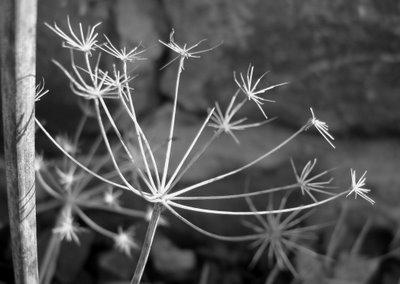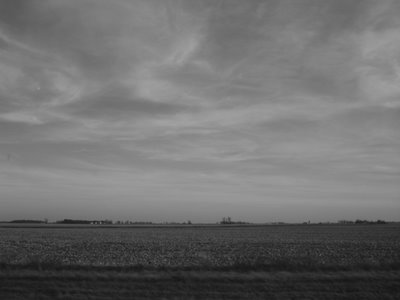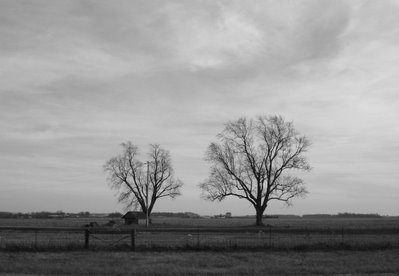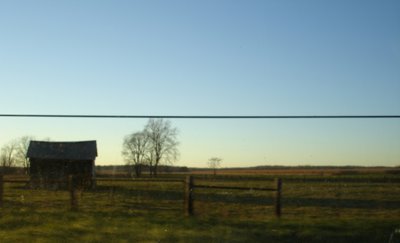Winter greening.
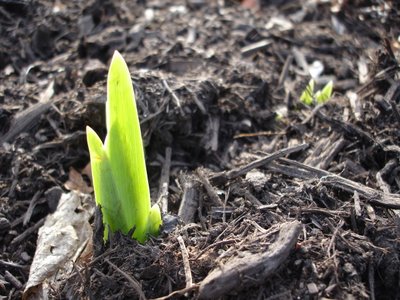
I don't feel that I have adequate words to caption this image for you tonight, and so I'm just going to offer it for what it is: eternally springing, utterly reckless hope. How and why? Who knows. For now, take it in.
We're nearing the end of things here; one always knows the end is near when, just as everything seems to come into some kind of focus, under some kind of control, the least expected explosion happens and threatens all the equilibrium in sight. And so I'm brandishing this little outseason spear of spring, holding it out in defiance of that which would throw us off, right at this crucial moment.
Soon (you have no idea), such new concatenation.
And, oh, alas: it turns out that my scheme of pajamouflage isn't going to work after all, given that the patterned pajamas are sold out. Perhaps for the best. (Unless everyone else had this same idea and is now enjoying it without me.)
Varieties of affective experience, including self-camouflage.
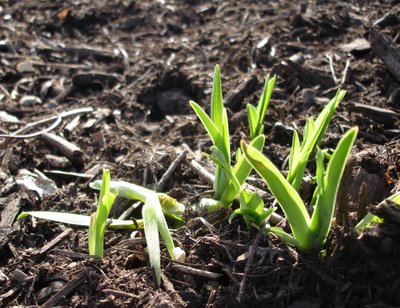
Here's a tiny taste of what it feels like to come home to a phone message telling you that you're loved and admired.
8:25 p.m.
Dr. S and her excellent friend are on the phone (in a call not unrelated to the abovementioned message though also not the precipitator of that message).
Dr. S: So, I bought new sheets for my bed, and now all I want to do is go home and be in them.
EF: Are they flannel?
Dr. S: Yeah, and today I discovered that the company's selling pajamas made from the same fabric. I could actually make myself disappear in my own bed, all but my hands and head. Only, no one would be there to not-see me.
EF: Can we get you the pajamas for Christmas?
Dr. S: [surprised silence, then laughing] I think it might be pretty weird to have pajamas that match my sheets!
[long pause]
EF: I think that it would be delightful, actually.
Dr. S: Yeah, actually, you might be right. And I could make myself disappear in my own bed, which might be pretty fun. And I'm planning to spend a lot of time working in my pajamas next semester. So maybe this is a good idea. I'll think about it.
And think I will. The bed is now such a cheery pattern on which to dream of checklists whose numbers dance free circles for a moment before turning in (or out?) for the night. As will I, now. What if I blended right in with that pattern?
Some hot descriptors.

igneous, a.
[f. L. igne-us of fire, fiery (f. igni-s fire) + -ous. (F. has igné, It. igneo.)]
1. Of, pertaining to, or of the nature of fire; fiery.
2. Resulting from, or produced by, the action of fire; esp. in Geol. Produced by volcanic agency.
ignivomous, a.
[f. late L. ignivom-us (Lactantius), f. igni-s fire + vom-ere to vomit: see -ous.]
Vomiting fire.
magmatic, a.
Of or pertaining to the magma (sense 3).
magma, n.volcanicity, n.
[a. L. magma (sense 1), Gr. [magma] (from [massein]: to knead).]
3. Geol. a. One of two or more supposed strata of fluid or semi-fluid matter lying beneath the solid crust of the earth. In mod. use: A hot, fluid or semi-fluid material beneath the earth's crust from which igneous rocks are believed to be formed by cooling and solidification and which erupts as lava. b. The amorphous basis of certain porphyritic rocks.
Volcanic action, activity, or phenomena.
See also: volcanized, volcanian, volcanization, volcanist.illuminate, n. and a.
[In use as past participle and participial adjective before the introduction of illuminate v., of which it subsequently served as past participle, but was gradually displaced by illuminated.]
A. pa. pple. and adj.
1. Lighted up; made bright by light. archaic.
2. Enlightened spiritually; divinely taught or inspired; in technical use, converted, baptized. Sometimes contemptuous = professing to have the inner light.
3. Enlightened intellectually; well-informed, learned. archaic.
4. = illuminated.
B. n. A spiritually or intellectually enlightened person, or one claiming to be so; one initiated into ‘the mysteries’. archaic.
That's right: some hotness is going on here tonight. Sparks from fingertips. Scorched earth keyboards. Such pages of fire, such catchy phrases. But so much more to light up your eyes tomorrow: tonight I'm burning in another direction.
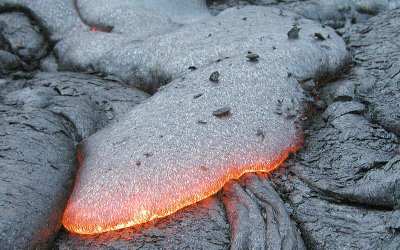
source for tonight's images: the U.S. Geological Survey's Volcano Hazards Program. It has a photo glossary. You should go explore it, not least because it's awesome. The top image here is a strombolian eruption; the bottom one is basalt.
To earn my Tolstoy.
 I may or may not have revealed by now that my dissertation director back at Cornell was a genius. Barely a day goes by when I don't use some piece of wisdom she bestowed on me in her inimitably wry way. One spring, when I was flushed with love and barely able to breathe, she looked me in the eye as I prepared to zip out her office door and said, "Work while you're hot." "Oh yes," I said. "Oh yes."
I may or may not have revealed by now that my dissertation director back at Cornell was a genius. Barely a day goes by when I don't use some piece of wisdom she bestowed on me in her inimitably wry way. One spring, when I was flushed with love and barely able to breathe, she looked me in the eye as I prepared to zip out her office door and said, "Work while you're hot." "Oh yes," I said. "Oh yes."
Today, I am invigoration itself. Not for the same reasons, to be sure. But I am going to follow her advice--after I tip out some of the excess things rattling around in this brain of mine.
The paperback edition of the newest translation of Tolstoy's War and Peace hit the bookstore sometime this week. Somehow, finding it this afternoon reminded me of what's waiting at the other end of this long month: time. Time to fathom what can be fathomed in the first reading of a 1400-page Russian masterpiece I haven't even allowed myself to think about for four years, lest it overwhelm my days. Which it will, if it's anything like Anna Karenina--and by many accounts, it's even better. The long masterpiece novel--the panoramic novel--is, for me, a genre of meditation, in a vastly different way than the lyric poem. It's entirely possible that my next book is going to be a meditation on this kind of meditation. Probably even with illustrations. "Do you have a teacher's manual that tells you how to read?" one of my first-year students asked me, when I was a first-year teacher. First-year incredulity met first-year incredulity. "No," I said. "Then how do you know what to do?" he replied. This question was an excellent one, precisely the kind of thing that only a student could show me I needed to consider. "I sit with the words," I told him. "I sit and I read them and I listen to what they're doing and I listen for echoes of things I've heard before and I watch for structures that eventually start to appear to my eye. It takes time. And patience. But this is beauty, right here: this paragraph is a beautifully structured paragraph." I don't know whether I convinced him. I know that I didn't get many "aren't you reading too much into that?" questions for the rest of the semester.
So now I have this new fat/phat copy of War and Peace, with its crazy chandelier, sitting to my left, and my just-arrived copy of Bechdel's Fun Home, sitting to my right on my office desk. And I have a belly full of omelet and ears full of music, just for the moment. And the sky is steely and open, dramatic in the very absence of drama it holds. And what I have between me and these books to my left and to my right: about three weeks. Though I'll tell you right now that I'll finish Fun Home before the day is through, on the principle of small rewards.
My dissertation director is not the person who taught me the principle of small rewards. This principle might be one that my friends and I developed collaboratively. It's also known as the small presents principle. When one has little money, little structure for one's time, and large tasks (like master's exams or a dissertation) to complete, it's important to break the time somehow. My friends and I decided that we could be compassionate to ourselves if we punctuated our work and recognized our accomplishments with small presents to ourselves. From where I sit--even though I'm not at home--I can see innumerable small presents I've gotten myself for one reason or another over the years: my pewter tadpole, my tiny geodes from the Children's Museum, my silver rings, my Ithaca Wisdom Snake, my steel bird. I can see the things that I've acquired with no money: the slips of blue and white china I found on the lakeshore in England two years ago, the rocks from Lake Ontario, the birds' nests, my photographs. I can see the things that have been given to me: the glass frog, the goose mug, the silvery new music machine, the bright quilt, the shiny teakettle, the poems, the student cards and notes. I am physically surrounded here. This afternoon, in front of the fiction shelves in the bookstore, with another friend's gift (a recording of Elliott Smith's "Angeles") in my ears, I realized that today I am columnar, grounded, pillared into focus in all the right ways for the things that need to come to fruition now.
And so, I flex my fingers, wait out a repeat of Smith's song, draw a breath for some completions. Some days are for finishing things. Today is one of them. And one of my small rewards for finishing the big things will be to read to the end of Fun Home--about which more soon, possibly tomorrow, possibly later (when I'll also tell you about 49 Up, which is just as good as, if not better than, I hoped it would be).
source for today's image: Amazon.com, bien sur.
Serenity dreamt.
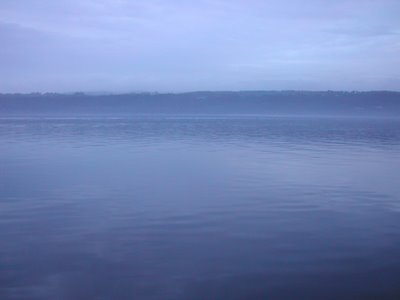
A day of rest, of quiet, of stopping, curling, staying still, pausing. Pause. Pause. What started out a comma in the long sentence of this month has, by this late time, become a semi-colon. Far to go before the full stop. For now: the next breath's drawing, gathering in soft dusk of this small silence, this short sojourn of tongue behind teeth. Gentle animals fold in the warm fields beyond my ears, nuzzling nose to soft-felted nose, closing their improbable eyes in unthinkably sweet rest. Even the migrations have quieted for the night, all but that one I can still hear resolving itself out of the blankness of the night, slipping in through my half-sleep at the distance of three years.
Skywritten and groundstarred.
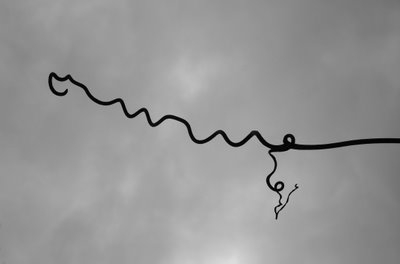
Wind here today so fierce it makes me want to write about Victorian weather. So fierce it flickered the power off and back on at the beginning of one class. So fierce it made the house hum and buzz in the afternoon like those mouth harps made from waxed paper and combs.
The stripped world scrolls and slips under those swift steely expanses. New flannel sheets spin and spin in the washer, getting ready for bed. Today I made seven pies and watched a small hungry horde of gleeful young people devouring them. Students hosted an open studio night in the art building (whose graffiti you saw back in March, if you'll recall). "And yet we believe," says one wall, "that life is beautiful." Tomorrow perhaps I'll get you some pictures.
Early in the afternoon, weedy stars in my backyard--a small startle, a lovely gift--and the singing sky, the soughing of breeze through branch, the calligraphic reach of grapevine curls to cloud.
Look at me and be color.

I'm borrowing my title from Tzara's "The Liontamer Remembers" (translated by Mary Ann Caws). Tonight I conjure color because the acid green sliding across the midwest's radar drained most of the color out of the day, pulled it right down the highway leading off the hill, along with all that coursing of water.
And I conjure in honor of Dan Beachy-Quick's visit today, which culminated in a splendid reading from Spell and Mulberry and some new work, too. It's beautiful work, all of it, and if you haven't read him yet, you should get his stuff. If you are a fan of Moby-Dick, Spell is the book for you. And then there was a dinner, what a dinner, full of spiderwebs and bird-catching and family stories and the artists whose works we'd be if our lives were works by artists. "I live in a Bosch," my friend said. I, shy, suggested that I'd like to believe I'm living in a Joseph Cornell. Our visitor chided me for hesitation. I explained that it seemed like too good a thing to claim for oneself. (To be that close to a paper moon, I thought to myself. To pirouette with those plastic lobsters. To jump from block of ice to block of ice, remembering Marie Taglioni's moonlit dance on the highway. To peer right in to those vials of sand. To float in one of those tiny infinities.)
At some point during the dinner, for some reason I can no longer remember, I brought up the fiction-writer Amanda Davis, who died suddenly in a plane crash in March 2003. I didn't know Amanda Davis (though my beloved Brooklynite's husband did), but I somehow heard about her death right after it happened--though, again, I can no longer remember why that was. In the aftermath of her death, I was touched deeply by the page of testimonials McSweeney's Internet Tendency posted, and which they've left up ever since, as I found when I got home and checked. It's a vast and deeply humane collection of memories and sorrows. The one that pulls at me most, always--as in, has since I read it on March 18 or so in 2003--is the one from her partner, Anthony Schneider. It's worth quoting in part, because it's just so lovely, and so heart-breaking, and so worth letting stand on its own as the end of tonight's writing: Sometimes, when we were sitting around talking, or eating dinner, or in the middle of a party, or just walking down the street, you would pull me toward you, out of the blue, and say, with great urgency: I just love you, so much. You had the softest skin and the sweetest smell of any person ever, and lying with you, wherever we were, felt like home. You made the world a better place and me a better person. You touched and loved and encouraged and listened and chided and cared. There is a hole in my heart as big as the universe. And you are painted on it. I just love you, so much.
In a silent film, this sky would want stars.
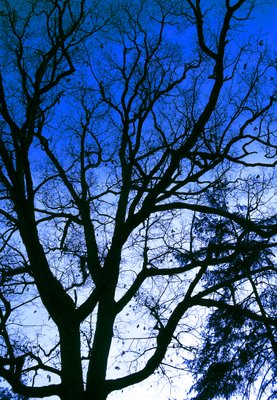
(That's your early cinema trivia for the day: when you see a blue-tinted scene in a silent film, you know it's nighttime. Film technology couldn't accommodate night shooting until several decades in, not until panchromatic film was introduced, and so blue tint signified night.)
A lovely thing happened to me last night and today: I've only just now realized how lovely, seeing part of its printed-out results. When my excellent poet colleague (who is away this year) came to town a couple of weeks ago, I wrote her a tiny poem. Yesterday, she sent me a poem she'd written for me (a response to "The Night Deer," which you may recall from June). Last night, I sent her another tiny poem I'd written, this time for myself, about the same bird who was in the first poem I'd sent her. And this morning I returned from my first class to find several pages of notes and suggestions--of reading--all in response to my little pseudosonnet, which is (as her labor over it lets me know she knows) no little thing for me at all, not in a week like this, not in a semester like this, not in a life like this.
And so the seven pages I've now pulled from the printer are a new nest: a poem speaking to a poem speaking to a poet speaking to one who wants to believe herself a poet but who still looks over her shoulder in the tiniest way when the name is offered to her, when she gets grouped in, included. "Where did all that come from?" my excellent poet colleague asks at the end of her message. "Homage; company." Company? Really? And yet I know well enough that I only write seriously to work I take seriously. I flush with pleasure, and gratitude, and I realize how much I miss her, all at once.
And what's more, she wasn't the only person to engage with that same little poem; my young poet friend, off writing his own adventures, helped me wrestle some of the clunkinesses and placeholders out last night even before I sent the poem off to my colleague. I had sent him the poem almost apologetically: it is so small a thing, just a sketch, line 5 does nothing. He sent it back full of provocations and requests for more. It seems I'm not alone in thinking that maybe there's something here to stoke; these recognitions are the beacon lights of these waiting days.
"You're coming out as a poet, you know," said another poet friend earlier in the semester. "That's what this is all about."
He was right: that is what this is all about. Sometimes I misread. Sometimes I think a blue sky is just blue, when instead it's night and I've been called to constellate.
Have I told you yet how much I'm scheming for new eyes? And how much grander will be my mode, come January? We're nearly at the bottom of the year. Just you wait for the turnaround.
Rescue, nearly.

A photograph on another's blog (of a bookmark that I, too, have) has reminded me today of this poem, toward which I have been known (if only by myself) to turn.
Poetry to the RescueYou must be
nearly lost
to be (if
found) nearly
found.
--A. R. Ammons
rescue, v.It's that first definition of "excuss" that I like best, or maybe some combination of the first and second that makes rescue a shaking back, a casting off again, a shaking out of one's loose robe, a getting the truth back once more. To find safety and deliverance therein. To save oneself by shaking off, getting rid. And recovering, only to deliver oneself from these assailants again, later.
[a. OF. rescou-, reskeu-, etc., stem of rescoure, -cure, -keure, -corre, etc. (F. recourre), = It. riscuotere:--Rom. type *reex-cutere : see RE- and EXCUSS v.]
1. a. trans. To deliver (a person) from the attack of, or out of the hands of, assailants or enemies.
b. To liberate by unlawful force from legal custody. Also in fig. context.
2. a. To deliver (a castle, town, etc.) from siege.
b. To recover, take back by force.
3. To deliver or save (a person or thing) from some evil or harm. Also freq. without const. spec. in Bridge, to make a rescue bid.
4. refl. To save or deliver (oneself) in some respect.
5. absol. To afford deliverance or safety. rare.
re-, prefix
of Latin origin, with the general sense of ‘back’ or ‘again’excuss, v. (obs.)
[f. L. excuss- ppl. stem ofexcutere , f. ex- out +quatere to shake; the vb. had also the sense of searching a person by shaking his loose robe. Cf. sense 2.]
1. trans. To shake off, cast off, get rid of. Said with reference to things material and immaterial.
2. To shake out the contents of anything; hence, to investigate thoroughly, discuss (a question or document); also, to get (the truth) from (a person).
3. Mod. Civ. Law. [Cf. OF. escosser, escousser, ‘saisir, dépouiller’ (Godef.).] To seize, take in execution (a debtor's goods).
Herding leaves.
I hate a task that wastes my time, and raking leaves is just such a one. I spent the better part of this evening leaf-blowing and leaf-raking, and I'm not at all happy about it. While I was working, I tried to find the poetry in what I was doing, and what I kept coming back to was the idea of how frustrating and sad it is to shepherd a dead season around a yard, and how much less of use than shepherding living things. At one point, knees-deep in the last pile, I thought of the times when I or my friends and loved ones have found ourselves stopped by livestock: cars surrounded by sheep, buses stalled before goats. A friend of mine once weathered a storm of sheep just by standing still.
The bottom line is that I do not enjoy yardwork, in any way, not even if the weather is nice.
Before the frustration started, we had a lovely day here. Mid-Ohio is setting high temperature records; we pushed into the mid-60s today. Best of all was the sun, which feathered this strange tree (which I pass often but never research) so nicely:


It's looking as though pictures from yesterday's drive will wait until tomorrow. (Unnecessary temporal complication? Yes. Not as good as spam frivolity, but it will have to do.)
Yes: frivolity.
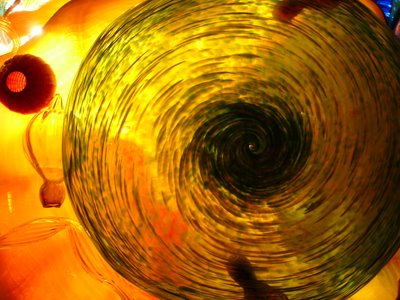
From now on, I am going to take many cues from this (relineated) bit of a spam message that awaited me upon my return to Gambier:
That's my lab table
and this is my work stool
and over there is
my intergalactic spaceship.Quite an occasion
to start things
up again.
Three hours later:
Now, imagine me as Charlotte from Making Fiends, saying "Wow!" Curious about whether or not the lines of text in that spam message were from anything, I googled them--and it turns out that the spam was generating out of someone else's blog. My first "stanza," then, comes from this guy's quoting Futurama one day (some of you may already have picked up on this; I am not a TV watcher and thus don't have a very broad allusion base there); my second comes from his remarking upon something that motivates him to restart his blog. Such strange circles! (And if some thing starts random-generating out of my blog, what will it choose? Where will my words go? Staggering!)
Tomorrow I'll show you what I saw on the way home this afternoon.
Un voyage de mystère.

Long-time readers may recall that, one day when I was in Indiana last January, I took my brother on a mystery trip. Today, he returned the favor. "It'll take about an hour and a half to get there. There are two parts. Both parts are open from 10-5. I'll pick you up at 11." That's all he told me before this morning; it's more than one can usually hope for, in the way of information leading one to a mystery trip. At 11:15 he arrived (cannily having figured that if he showed up a bit late, I'd be ready to go); by 12:30, we were rounding this corner in Indianapolis
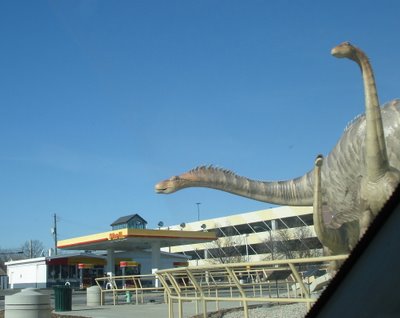
heading for the Indianapolis Children's Museum, where Dale Chihuly's Fireworks of Glass installation is now on permanent display. The installation has a 43-foot tower and also one of Chihuly's trademark glass ceilings, which allows viewers to walk underneath his glass pieces. Now, I know that some people don't love Chihuly's work. I happen to be someone who does love it, almost always, for the sheer extravagance of its colors and shapes, and for the way it transforms whatever space it enters. And so, bless my brother's heart, this trip was exactly what I needed, in ways that even I didn't know, not even when we were lying on our backs on a motorized, circular couch-thing, looking up at the ceiling and taking pictures of the colors and shapes above us. It's been a long, long time since I've let myself just get swallowed by a piece of art.

I can tell you that you're going to see a lot more of my pictures of the ceiling; I took picture after picture, and these lights and shapes are going to be vital. I'm not planning to be stingy.

For now, just trust that my brother and I followed the rules
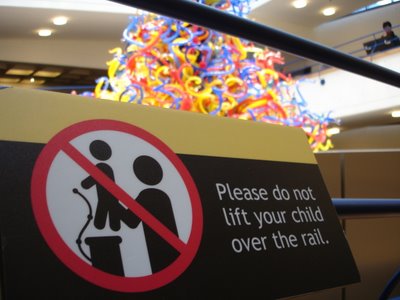
and (after a brief detour through the Scienceworks room, where we were able not only to build an arch out of vinyl-covered foam blocks but also to throw fake rocks at one another) successfully proceeded to the second stage of the mystery trip, the Indianapolis Museum of Art, where we saw the Gee's Bend: The Architecture of the Quilt exhibition. As we neared the museum and the Gee's Bend banners came into view, I suddenly remembered that my mother had mentioned in passing, just after I arrived on Wednesday, that the quilts were in town. She and I, you may recall, saw them in Boston in 2005 (though all evening I've been marveling at my good fortune in having gotten to see them twice in one year--one more marker of how swiftly time is passing for me these days). I was overjoyed at the thought of getting to see the exhibition again--and touched that my brother knew so well and fully how settling and comforting I would find seeing the quilts.
But things got even better: the exhibition turned out not to be the one my mother and I had already seen. Instead, it's a new one, incorporating some of the pieces I'd already seen, along with many others (themed around houses and buildings, chiefly) from the 1920s all the way through 2005, which means that many of the quilts on display have actually been produced since the Gee's Bend quilts started touring the U.S. in 2002. In fact, one of the women whose work is now featured turns out to have started quilting after having visited the Houston show that inaugurated the quilts' traveling; on the plane home to Gee's Bend, she started seeing visions of quilts, and she hasn't stopped quilting since. Now, I wasn't able to take pictures for you, but rest assured that you will feel the benefits of my having seen them (and not just because they were so utterly a recharge). And, for goodness sake, if you live near Indianapolis, hie your way to the art museum sometime between now and December 31 and see this exhibition. Go here for more information about the Gee's Bend quilters, as well as a schedule of where and when the quilts will travel next. You can't imagine the colors and textures and patterns you're in for.
There's more to say, but how am I going to tell you about the beauty of corduroy arranged and quilted to produce a texture richer than velvet, or about how stunning the abstract rectangle of a free-hand cut and pieced quilt can be? How, on a night when I've seen both Casino Royale and Blacula? (I highly recommend both, by the way.) And on a night when I have a long, deaf dog sighing and snoring in the other half of the bed? This time tomorrow, I'll be back on my own; you'll hear more about the quilts and the glass then. For now, enjoy seeing the original of this famous piece:

as well as a glimpse of my home landscape, in one of its most starkly lovely incarnations.
Thanks for what has been given.
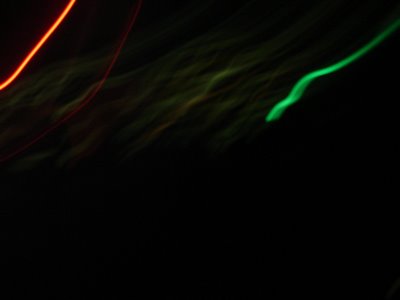
There will always be the wanting.
Last night, for instance: on the road, in the home stretch, 24 miles to go, a red neon restaurant sign: Prime Tim. Tim instead of Time, the crucial absence. And a stoplight, just long enough to grab the camera, catch a picture. But no. It's a fast stoplight, there in the middle of the southern Indiana almost-empty night. And in the dark exposures take more time. So I end up with something for which I did not try, a lovely thing I have not earned, an electric aurora. And I drive through my ribbon of illumination alongside the night-dark cornfields thinking, for the first time in months, of my friend Tim, whom I have not seen in a decade.
So, may there always be the wanting. Look where it leads.
Today, I bake and grade and listen to the sounds of others in a house. Voices go up and down the halls below my perch; the dog's toenails keep time irregularly while she paces the dinner that has been in the making all day. More silverware makes it to the table. And in my imagination, a similar series of pacings and clickings and clatterings and preparations: dinners being masterminded in all manner of places. Almost no one I know and love is having Thanksgiving where he or she lives this year; we have dispersed, evacuated our homes, pulled inexorably back to where we're from. I know that I will not unfurl on this trip, that the uncoil, the rebound, the reach and the rest will all wait until I'm fully here, after the Academic Mayhem next month. But it's still a loveliness to be at least partly here, in the blue room above the bright kitchen and the warm smells.
Among the many things for which I'm grateful: getting to be at the center (in my own mind, you see; read your Middlemarch) of this collection of far-flung yous who circle my life, however distant you are from my presence (or even from my awareness; I leave room for those of you I have not yet found, or may already have lost). Be safe and careful and good and loved, today and always.
Let us now praise books and verse.
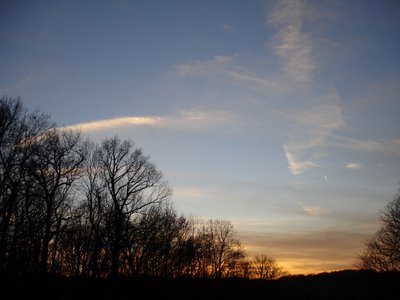
Today, for the first time in my three years at this place, I managed to be in town for employee appreciation day at the bookstore, which meant 30% off of anything I cared to buy. I cared to buy. Bibliomania might be too gentle a word for the condition with which I live. I won't say it's a condition I suffer, though it's had its downsides over the years (not least, the high monetary and physical costs of moving two tons of books even the short distance from upstate New York to central Ohio). Book buying is an experience of greatest comfort and reassurance to me. It is a peopling of my world. It is a finding of voices that teach me better how to sing and to sorrow, how to hold myself open even when the light wanes and frost follows roof-shadows to stripe the lawns of my waking.
I am in pursuit of ecstasy in this life of mine; I suspect you've got my number by now, those of you who read here consistently. I suspect that things would go more easily with me if I settled for a middle road; in risking myself, I all too often (especially this year, it would seem) come collapsing back in pained frustration. But there's a reason for my enduring love of that Matisse paper-cutting of Icarus. That's what it's like to be me, there with that burning coal reddening the breast. I don't burn low. And often I end up consuming myself. But oh, I'd rather have this fierceness than something more tepid. I'm going to continue gambling that this choice (if choice it is) will pay off--if in no other way than in my knowing that I'm living all the way up, to the best of my ability. The numbers all go to eleven here. It's a life of lava-lymph.
And yet it is a tempered ecstasy I'm after. The reason yesterday's word-find settled me so much and so deeply is that I've been trying to center in, this week, to quiet and collect and compose myself after many weeks of having lost my focus altogether. All day I have been drawing strength from this new exhalation that "elne" represents to me. It's just possible that one of my rings will be picking up an interior engraving during the remainder of the week, so that the word is always there among my reminders, pressed to the flesh of one of the fingers with which I do the work I have been given.
One of things that has come to center me this year, more than any year in my life, is reading poetry. It's so strange a thing: I feel myself a complete novice in the company of poetry, and of poets for that matter. Nothing widens my eyes quite as having poetry read to me does; nothing makes me feel more like Maggie Tulliver in Mill on the Floss, when George Eliot describes her as having her soul "played on...by the inexorable power of sound." When Maggie listens to music, Eliot tells us, "You might have seen the slightest perceptible quivering through her whole frame as she leaned a little forward, clasping her hands as if to steady herself; while her eyes dilated and brightened into that wide-open, childish expression of wondering delight, which always came back in her happiest moments" (bk. 6, ch. 7). Great rushes of sound are what work on Maggie's soul. In just the right mood, I too can be swayed by music. But what sways me more than anything is language at its best. Poetry, read aloud, plays me (to borrow from that chapter of Eliot's novel one more time) as if I were "constructed of musical strings."
It has been one of the richnesses of my semester to get to hear reading after reading here, and we're not quite finished yet. And it's one of the delights of my day that I'll leave it with two new books of verse. One is not, strictly speaking, new: it's Ilya Kaminsky's Dancing in Odessa (2004). Kaminsky opens his volume with an Author's Prayer, the end of which I love quite a lot:
Even sleep is a prayer, Lord,I love the beginning of it, as well, but I'm not going to quote the whole thing. You should read this book.I will praise your madness, and
in a language not mine, speakof music that wakes us, music
in which we move. For whatever I sayis a kind of petition, and the darkest
days must I praise.
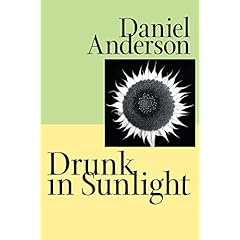 The other book that goes with me out of my day is the just-arrived Drunk in Sunlight, by my excellent poet colleague Danny Anderson. I'm super thrilled to recommend this book, of which I actually will own two copies soon enough, since I managed not to cancel my Amazon order in time after having placed an order directly with Johns Hopkins UP. (Somehow I managed to misremember the publication date. I blame They Call Me Naughty Lola, that collection of LRB personal ads [which is forthcoming in December] that you know I pre-ordered the moment it was titled.) Anyway: you too should own a copy. Click the sunflower. Place an order.
The other book that goes with me out of my day is the just-arrived Drunk in Sunlight, by my excellent poet colleague Danny Anderson. I'm super thrilled to recommend this book, of which I actually will own two copies soon enough, since I managed not to cancel my Amazon order in time after having placed an order directly with Johns Hopkins UP. (Somehow I managed to misremember the publication date. I blame They Call Me Naughty Lola, that collection of LRB personal ads [which is forthcoming in December] that you know I pre-ordered the moment it was titled.) Anyway: you too should own a copy. Click the sunflower. Place an order.
Even greater than my blessing in getting to attend so many poetry readings this semester has been the blessing of simply getting to be around both Danny and my other poet colleague, G.C. Waldrep. Their aesthetics are completely different, and when they did a double-header reading in September, I think we all waited to see what the effect would be--which is not to say that any of us thought it would be anything but splendid. Instead, I think we were waiting to see what kind of splendid it would be, if splendidness can be taxonomized. (Not a one of us was anything less than thrilled, might I add.)
I'd read Danny's work (you, too, can read it here and here and here; these pieces are all from the new book), and I already knew how terrific he is as a person, even before the end of September. But what emerged from hearing the poems aloud, and hearing the stories he tells about his works, is the gentle dryness of humor that animates him as a person and that becomes a quiet, graceful, profoundly generous wisdom and wry loveliness in his poems. The poems themselves are eminently approachable. They are about a world you may know, and they reach to your ear in language you probably use. They work in formal rhyme and meter--these are not free verse works--but their technique is never obtrusive. It is light and deft, inviting you onward and building its powerful, even devastating, effects through an accumulation of genuine humility. So it is that "Question," from midway through Drunk in Sunlight, can ask at an early moment, "Is this a ghost of summer camp?" (even as the facing page begins with "The sudden whipcrack clarity of love") but can then build to a meditation on the experience of feeling a poem take shape in and from and for the world around a watching poet:
The dragonflies, they come againIt's simply a lovely book, and by simply I mean deceptively so. It is the right thing to be reading as the days darken down; its poem "First Frost," just for another instance, is harrowing and consoling all at once in its flickering revelation of coming winter, of inevitable death. This collection is one among many things to give thanks for this year. Let the restless province of your eye be troubled, and enchanted.
Like blue allusions, silks of thought.
They jostle, tease, and occupyThe strangest quarters of your mind,
Enchanting, sometimes troubling, too,
The restless province of your eye.
Elne, elne, elning.
 Enough already, I say. It's time to get on with things. Stop with the wheel-spinning, the tooth-gnash, the hands-on-hips protest against things as they are. They are as they are. Enough. Get going.
Enough already, I say. It's time to get on with things. Stop with the wheel-spinning, the tooth-gnash, the hands-on-hips protest against things as they are. They are as they are. Enough. Get going.
It's been that kind of day. We're on break, but break means "a stop in the daily routine long enough to clear out the things that were meant to be done weeks ago." And I am impatient with my own sorry suffering. And I am impatient with all that has built up and blocked me from being able to be clear, for weeks and weeks. And so I say: get going.
And yet: tonight, a walk off the east side of the hill, down to my beloved classicist friend's house for tea and dinner. And on the walk, the sun, for the first time in days. And though I was walking away from it, and though it was in speedy decline though it was only 4:30, it was still just what I required.
And then, upon returning to the officehouse for more painstakingly slow grading, the gift of new words. I found them while checking up on "eloquent" in the OED. I pass them on to you, because if you are anything like me (which you might not be), they might be just what you require. You will want to pronounce these first two "EHLnuh," I believe, when you start working them back into the English language; they are all obscure words whose last citations in the OED date to around the middle of the thirteenth century.
elne, n. Strength, courage (also, in Old English, zeal); in theology, strength vouchsafed, comfort, grace.elne, v. To strengthen, hearten, comfort.Somehow the noun "elne" seems to me one of the most sustaining things I've heard in a long time. It has a sound so solid, a sound that is itself the simple, unshakeable strength the word signifies.elning, vbl. n. Comfort, grace.
Elning to all of you tonight, you my readers and my non-readers.
What we have instead of fire, some nights.
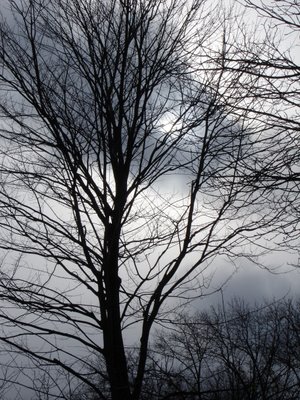
Coming home from the pharmacy this afternoon, I saw a wild turkey standing in a neighbor's yard. It stood so still that I doubted my sight and went around the block to be sure that my neighbors hadn't bought a lawn turkey. By the time I got back to their corner, the turkey was limping across the highway. It's been a strange fall.
One of my favorite things about my institution's academic calendar is our week-long Thanksgiving vacation. We--by which I mean everyone in this tiny place--drive ourselves right up to the Friday before the holiday, and then we flee for a week (even if only to our own living rooms), and then we come back and drive ourselves through a last few weeks. In some ways, it's the most intense time of the year, especially for those of us who have seasonal affective disorder or anything like it. The vacation comes just before one breaking point, and I think its length staves off another. If I'm diligent--which I will be once again, in just a short time--I can accomplish the work I need to do and still get a few days of rest.
In the meantime, I've discovered the Be Good Tanyas. I don't understand why I didn't find them sooner.
So: this afternoon found me, come off yesterday's day of rest, sailing through our wintering palette--which, despite my love of brightness and my loathing of early dark, I have to admit I may love more than the summer's colors. Our shades of steel and straw are manifold these darkening days. There's a sadness to the sun's tentative appearances, and to the wash they give to the world's blacks and browns and pale blues, that offers me its own beauty this year. And with the fields cleared, my barns are blending differently than they have for months; white walls and a rusted roof grow differently from winter furrows than from their summer selves.
My world is remaking itself yet again, and in response I find myself wanting new eyes. I start making plans.
I make my plans by reading, as I have always done, as I cannot remember not doing. I gather my pieces, my curiosities, my talismen. I will show you my shards. Tristan Tzara, for one: "I speak of the one who speaks who speaks I am alone / I am only a little sound I have several sounds in me" (Approximate Man, part I). And the end of Elizabeth Bishop's "The Monument":
It may be solid, may be hollow.I am watching. I am. I've been given a different range of things to watch this week; I am not facing the things I had expected. I believe that this means that roughly but adequately I'm sheltering some other beginning. Watch closely.
The bones of the artist-prince may be inside
or far away on even drier soil.
But roughly but adequately it can shelter
what is within (which after all
cannot have been intended to be seen).
It is the beginning of a painting,
a piece of sculpture, or poem, or monument,
and all of wood. Watch it closely.
Tonight (if I could) I would light a fire.
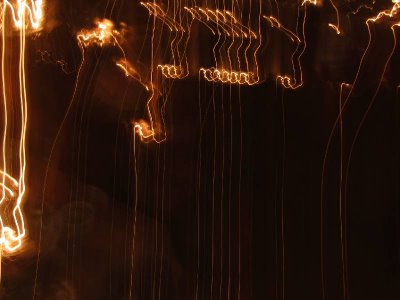
When I'd reeled my heart back in, palms wearied and blistered in their labor over the spool I turned out to have been holding all the while, I did indeed ask it where it had been and what it had seen.
All are where they're supposed to be, it told me: He is taking his pictures. He is missing his wife. She is piecing her projects. She is barking obscure dreams in her sleep. She is rocking her baby. He is loving his small friend the wooden 2, dreaming of his cube. He is watching television, thinking about savings. He is writing his poems, dreaming of what he wishes for his life. She is cradling a small body with her ampling one. He is standing at a podium singing the songs of his yearning. They are settling in with their furry boy. Some of them are up north. Some are west, some east. A few are even south, and more will be there soon. When you start listing you think of more and more and you realize that you don't even know where some of them are. And they are so scattered and they are all constellated and they are all unknowing in their quiet places in the loose confederation of your self, they are all scratches circling this candle, your small flame to the glass in this small town's large dark.
And yes I said yes, I would light a bigger fire, circle everyone up, settle them all down. From here the best I can do is sing them to sleep. Gentle down the temporal, stroke smooth the sounds of day. Ease, o ease the even teeth. Slacken the strong jaws. Lighten the eyelids and pool those sweetest dreams. Keep the night vasts at bay. Float the arms through their sleeping. Bless the fingertouches that joy their waking. Yes I am all alight at my watch, my wish, my wanting. Yes you are my emissary.
And then my heart said, what were you doing all that time I was out dipping and wheeling? And I said, I was at work on the slips and the sparks and the streamers you'll take up with you next time. I'll knot them into the lines soon enough. For now don't leave; things go so hollowly with me when you're away.
Already I could feel it gathering to go.
